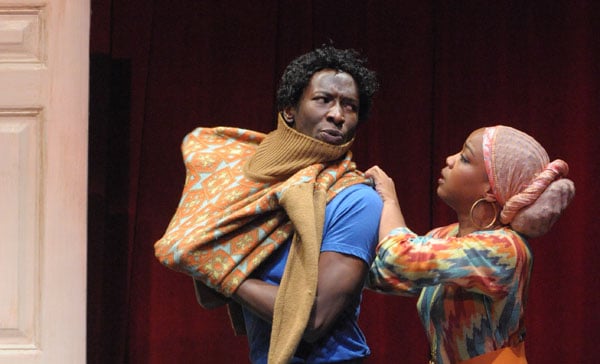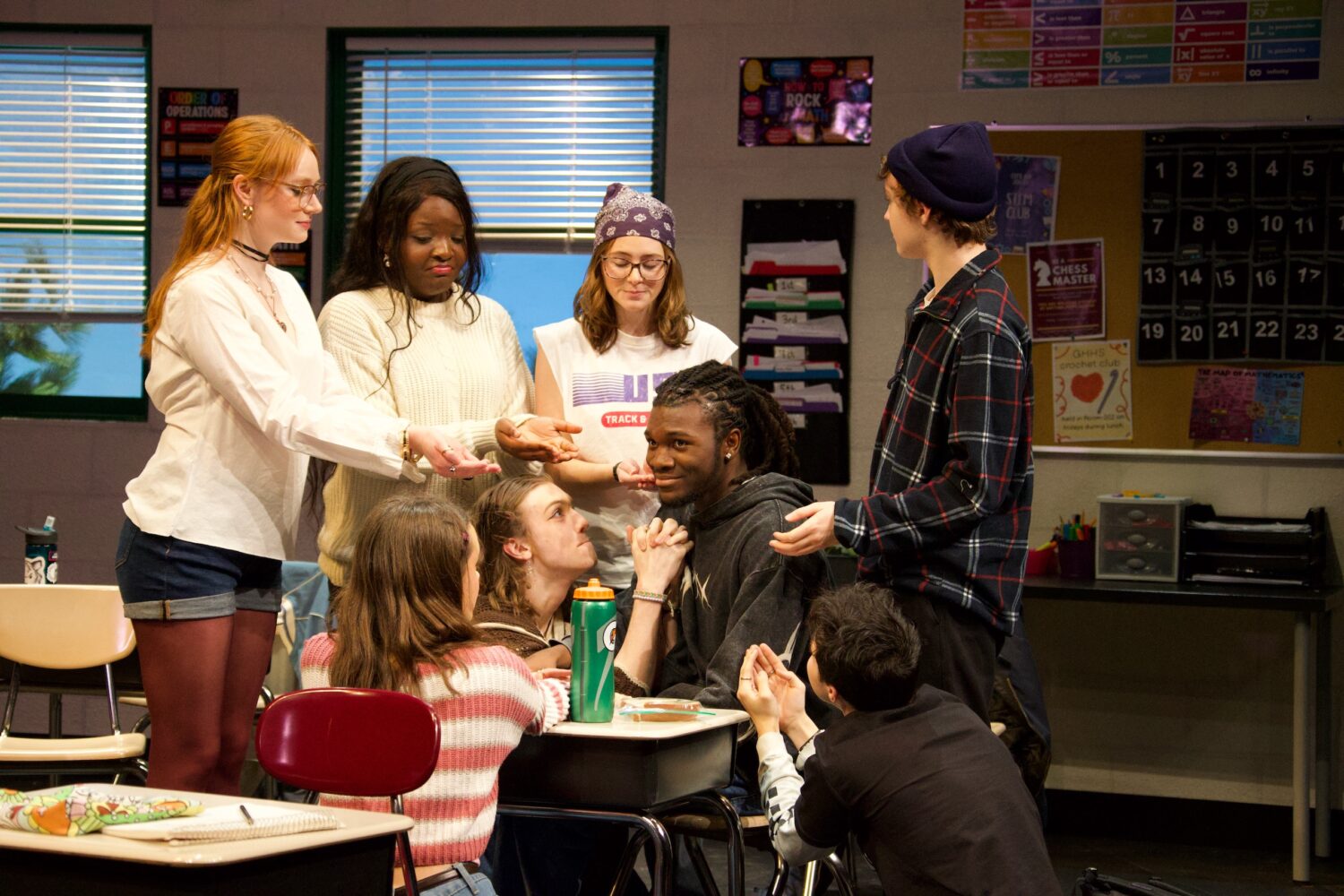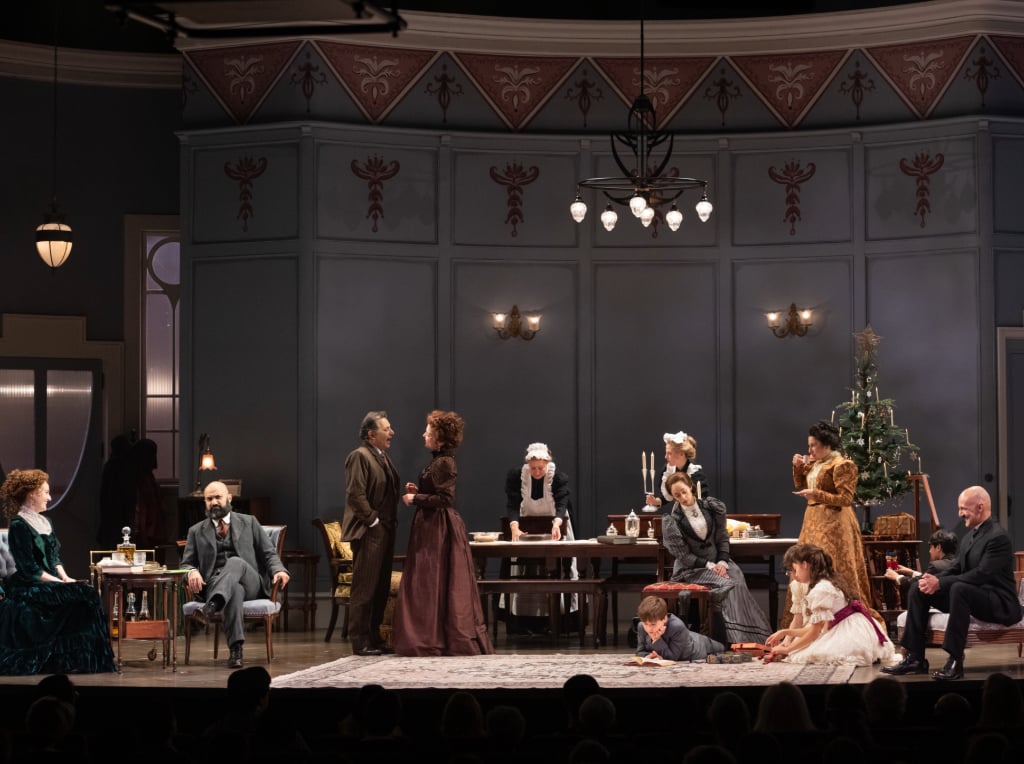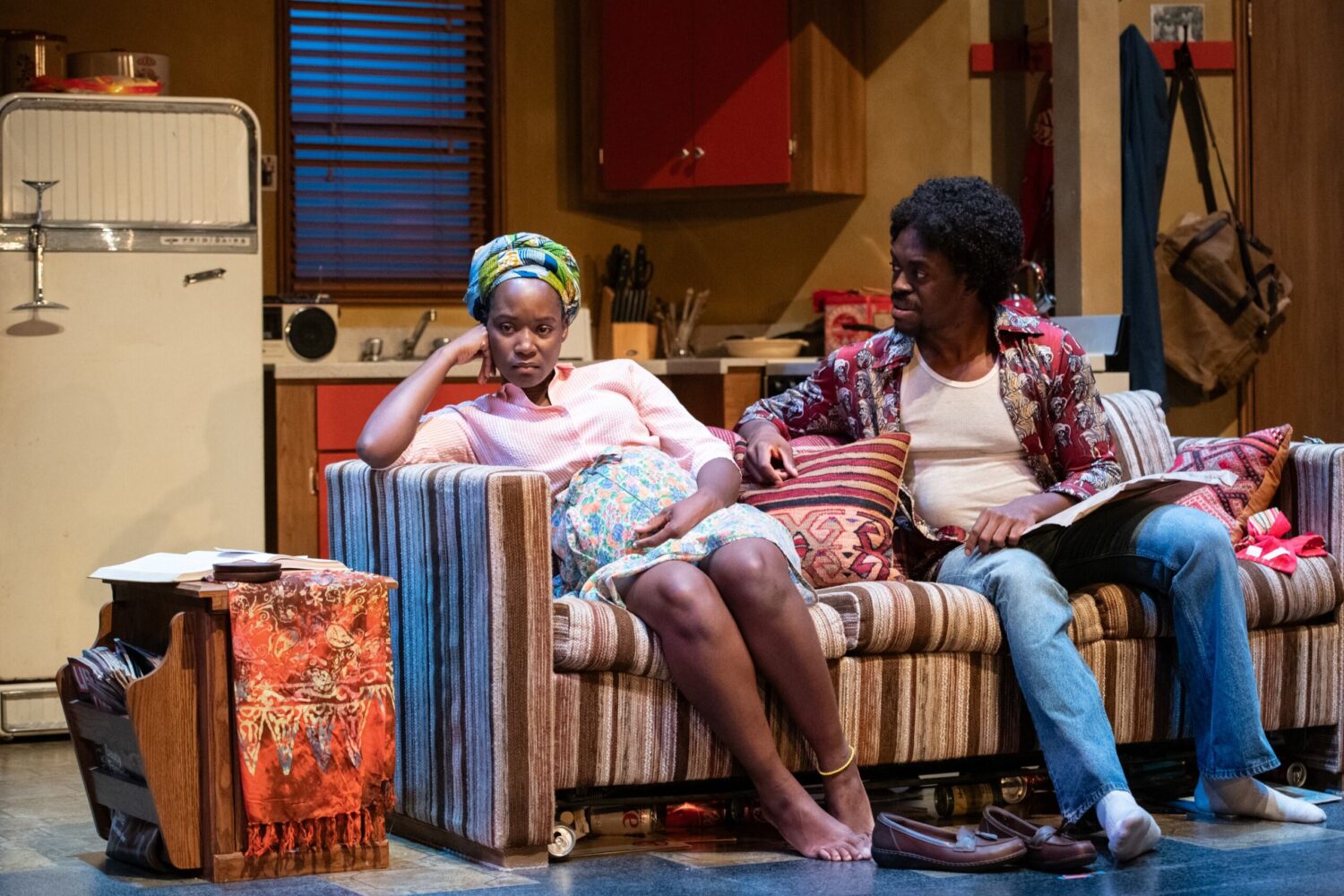☆☆☆ stars out of four
Apple, Pilot Inspektor, and Moroccan may be eye roll-worthy kids’ names, but they’ve got nothing on Genitalia.
The Brooklynns and Maddoxes of the world are just one of the absurdities of modern culture that Woolly Mammoth’s Bootycandy takes to vulgar extremes. In writer/director Robert O’Hara’s play, four performers over the course of ten vignettes toy with language, sexuality, and racial identity, often in caustic and unexpected ways. A father who wants his gay son to take up wrestling rather than show choir? That’s plausible. A father who also lectures his son to “stop playing with my anal beads”? That’s Bootycandy.
The mini-plays often feel like fantasy sequences, with a set of rainbow colored stage lights and dramatic-looking curtains furthering the effect. The sequences can be cathartic (a minister dresses down his gossipy, judgmental churchgoers in spectacular fashion) or comedic (the rage and release of a lesbian couple breaking their vows in a “de-commitment” ceremony). They also can get a little preachy, such as when a victim confronts his unseen mugger and gives a rambling, patronizing monologue on why the perpetrator should walk away from the crime.
With so many rapidly switching roles, Bootycandy’s performances often have a loose, improvisational style, but the show still allows for some meatier scenes. Phillip James Brannon plays Sutter, who is the closest O’Hara gets to an autobiographical character. Brannon is often graceful and magnetic, but also lets us into the raw pain and rejection at the root of the character’s crueler actions. Lance Coadie Williams’s melodious voice, expansive presence, and infectious smile continually grabs attention onstage, while Jessica Frances Dukes and Laiona Michelle have great comedic chemistry.
O’Hara’s writing style is conversational and elegant, with an ear for nostalgic pop culture references, from The Wiz to RuPaul, and a tendency toward abrupt, shocking twists. Bootycandy is most powerful when it is making things uncomfortable—one episode begins with squirm-inducing graphic sex talk, but becomes a moving and complicated exploration of a friendship tested by forbidden desires. The play is most frustrating when O’Hara’s experiments become too meta. A scene stops abruptly because an actor decides things have gotten too dark and gratuitous; another has a panel of haughty playwrights anticipating unwelcome reactions to their works in progress. Those moments feel more self-congratulatory than revelatory. Bootycandy’s tough questions and disquieting moments should be digested on their own.
“Bootycandy” runs through June 26 at Woolly Mammoth Theatre Company. The production contains brief nudity. Tickets ($30 to $65) are available at Woolly Mammoth’s Web site.
Subscribe to Washingtonian
Follow Washingtonian on Twitter
More>> After Hours Blog | Arts & Events | Happy Hour Finder | Calendar of Events

















